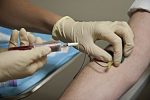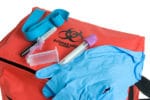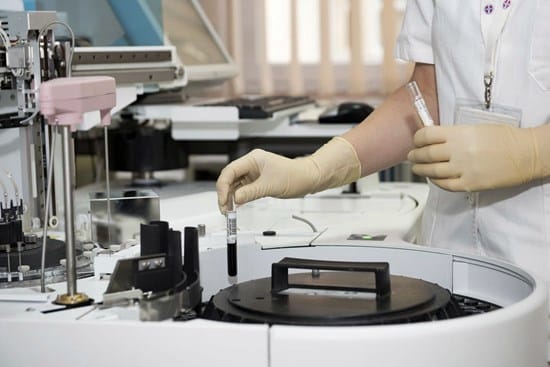Phlebotomy is a flexible, rewarding and potentially lucrative career path for anyone who wants to join the medical profession. It doesn’t require the extensive training that you might need to become a doctor or surgeon, but it’s an essential role, and one which supports the decisions doctors, nurses, surgeons and other practitioners make.
Many people look to phlebotomy as a career path for later in their life. It’s an excellent position for those who enjoy working with the public and making a difference. It can also be a very flexible and well-paid position, depending on how you set up your services.
Phlebotomy can also be a great way to travel the world. Traveling phlebotomists are always needed, both at home and overseas. From local blood drives to disaster zones in faraway countries, there’s plenty of demand for phlebotomists the right qualifications.
In this article, we’re going to look at what a mobile phlebotomist does. We’ll examine their responsibilities, the benefits of these positions, and how you can become a certified traveling phlebotomist too. If you’ve ever considered a career change, it’s time to find out more.
[su_list icon=”icon: check-circle”]
What is a Phlebotomist?
First, we’re going to look at what a phlebotomist is, and what they do. A phlebotomist is primarily a medical professional who draws blood samples from a patient. These blood samples are needed for a multitude of reasons and can be used to diagnose a plethora of illnesses and conditions.
Phlebotomists are also needed for blood drives, where organizations arrange for volunteers from the community to donate some of their blood. This is then used for blood transfusions for those who are seriously ill in hospital. A phlebotomist will be present at these drives to draw the correct amount of blood and ensure it’s correctly labeled for the hospital’s use.
What Are the Duties of a Phlebotomist?
The idea of being a phlebotomist sounds simple on paper, but there’s much more to it than inserting a needle and pulling some blood. A phlebotomist has many duties and responsibilities that go much further.
Phlebotomists use needles when drawing blood, and they must know how to perform the task properly and safely. Needles must be sterile, and the area where blood will be taken from should be cleaned with rubbing alcohol to kill any bacteria. The needle is then inserted very carefully, and a small amount of blood drawn from the patient.
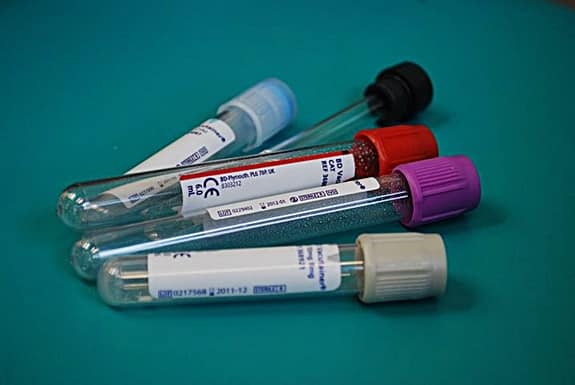
A phlebotomist is also responsible for the accurate labeling of all blood collected. This is an essential part of the job. If a specimen if wrongly labeled at a blood drive, it could be given to someone with a different blood type, with potentially fatal consequences. If a blood sample is incorrectly labeled with a different patient’s name or other details, the wrong results could be reported back. Strong attention-to-detail is a must if you want to be a mobile phlebotomist.
If a blood sample is incorrectly labeled with a different patient’s name or other details, the wrong results could be reported back. Strong attention-to-detail is a must if you want to be a mobile phlebotomist.
Phlebotomists must also:
- Have strong communication skills, to interact with a wide cross-section of the public, from tiny babies to older adults.
- Keep their workstation sterile at all times, providing a suitable environment for drawing blood.
- Be able to liaise effectively with doctors, providing updates on blood samples and ensuring each patient receives the appropriate care.
What Does a Mobile Phlebotomist Do?
A mobile phlebotomist has all the duties and responsibilities of a regular phlebotomist. The only difference is that they’ll be performing their services in a variety of different locations, rather than working at one venue every day.
A regular phlebotomist might have a steady job in a local clinic or hospital. A traveling phlebotomist might spend two days a week in a clinic, two days a week working at local blood drives, and a further day going to local nursing homes to collect samples.
Desired Traits of a Traveling Phlebotomist
Phlebotomy is a field that requires lots of skills and traits – and being mobile is even more demanding. To be successful, you’ll need the following traits and skills on top of your qualifications:
- The ability to manage your schedule, which can sometimes be hectic.
- You must show up on time at all of your appointments, whether it’s a health care institution or a patient’s home. It’s unlikely that there will be anyone around to replace you or carry out your work instead, so showing that you’re reliable is vital.
- Being able to help a patient remain calm. Many people are scared of needles – some will be frightened even at the sight of them. A good mobile phlebotomist needs to be able to calm a patient down without needing to call on other doctors or nurses for assistance.
- The ability to store and transport samples properly. You’ll need a vehicle that is reliable, and a clean and full driving license to deliver samples to the appropriate laboratory.
- You’ll need to be able to work alongside people you don’t necessarily know. You could be working in a different location every day. The ability to build a relationship with doctors, nurses and patients will prove invaluable to you.
- You must be able to clean and sanitize new areas effectively. Hospital phlebotomists have the benefit of a cleaning routine for their workstation, which is the same every day. As a mobile phlebotomist, you’ll need to be able to adjust without compromising on standards of hygiene and cleanliness.
If you think you have all the skills and traits required to be a great mobile phlebotomist, read on to find out how you could turn this career dream into a reality.
How to become a Traveling Phlebotomist
There is a multitude of different pathways you can take to enter the world of phlebotomy. Some people become phlebotomists straight after graduating from high school or college with a bundle of relevant qualifications. Others take dedicated phlebotomy courses at university later in their lives to become certified and change their career.
Let’s take a look at the different ways you can become a phlebotomist, and the qualifications you’ll need to get started.
Graduating from High School
Phlebotomists don’t necessarily need to have seven years of medical school training behind them – but they do need to have graduated from high school. If you dropped out of high school or didn’t get the required grades to graduate, you should consider re-taking those classes so that you can realize your dream.
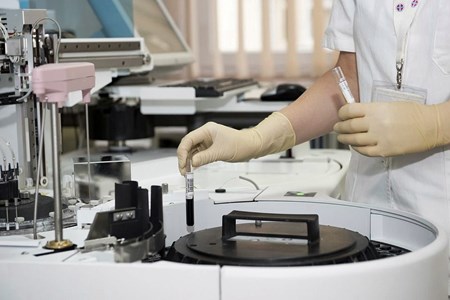
Dedicated Phlebotomy Schools
If you managed to graduate high school with good grades, you could head off to a school, or enroll in a program. This is also true for those who want to switch careers later in life. If you’ve been working in an office for many years and would like a change of scenery, you can enroll in a program to become qualified.
There’ll be a steep learning curve on your course, even if you already have a basic understanding of medicine and medical terms. You’ll learn about anatomy and physiology, mostly focusing on the circulatory system. It’s crucial for you to understand blood and cell composition, so you have a better working knowledge of your chosen field.
You’ll learn blood sampling procedures and how to handle different techniques for newborns, children, adults and the elderly. Lab safety will also prove an essential part of your course. Labeling, transporting and delivering samples, as well as cleaning your workstation and lab area are just as important as the actual sampling process.
You’ll need to make sure the program is accredited, or it will be a waste of your own time and money. You should also double-check that the program is recognized by the state, or states, in which you want to work. Each state has different licensing and certification requirements for phlebotomy. If you plan to take your business around the country, you should check that your course will enable you to practice anywhere.
College And Phlebotomy
Many people want to go to college to give themselves the best possible chance of succeeding in life. As we’ve mentioned, you don’t necessarily need a degree to work in phlebotomy, but you can add phlebotomy onto your degree as a great backup plan. It would be a great way to help you see the world straight out of college, and if you’re majoring in medicine or another related industry, phlebotomy experience would be a handy feature to add to your resume.
Getting Certified And Licensed
Wherever you want to work, you’ll need to be certified and licensed appropriately. If you think you’re ready to search for a phlebotomy job after you’ve qualified, make sure you have the right certificates and licenses in place.
The American Society of Clinical Pathologists, American Medical Technologists or the American Association of Medical Personnel can provide you with the certification and license you need. You can also apply to the National Credential Agency. Each organization will have different requirements that you need to meet before you can become certified. Be sure to bear this in mind when thinking about where you’re going to study.
Becoming Experienced
Experience will be precious in your journey to becoming a traveling phlebotomist. If you have previous experience on your resume, you’ll find it easier to pick up jobs wherever you go. Many certification programs or phlebotomy courses offer the chance to intern at a lab. You can also seek work experience at blood drives or clinics to see how the process works and test the water.
Try to take as many opportunities to gain experience as you can!
Finding a Job as a Mobile Phlebotomist
Once you have the right certifications and some experience under your belt, it’s time to start looking for jobs. There are lots of ways you can accomplish this, and it’s better to get started sooner rather than later! Some of these places will provisionally hire you before you finish your training, so it pays to search early.
The first place to look for jobs is local doctor’s offices and clinics. You can search online for any clinic within a twenty-mile radius, and work from there. You may be able to contact them online to inquire about positions, or you could head down there to ask in person. You’ll also pick up some useful information about things like local blood drives.
Hospitals are also another great place to start looking. Phlebotomists are needed in many areas of a hospital, from the emergency room and the intensive care unit to the obstetric department and of course, the hospital’s ‘blood bank.’
This is a very fast-paced environment, especially if you work in the emergency room. You’ll need to think on your feet, manage a large workload and be able to keep cool in high-pressure situations.
If you’re looking for a position with a slower pace, you could try applying for local labs. Some labs are only responsible for examining and testing blood samples. Others involve small numbers of patients being sent in, with a much calmer workflow than a hospital or clinic.
There’s less driving around involved with this position. You won’t need to invest in any blood storage or transportation equipment because you’re already in the lab!
Then there are the blood drives and blood banks. Many phlebotomists spend their days traveling all over the country, from a blood drive to blood drive. These are generally community events with a friendly spirit and atmosphere.
If you’re a social and approachable person who can keep people calm while up to a pint of blood is extracted from them, this type of work is for you. Head down to a local blood drive and ask to speak to the coordinator. They may be able to advise you about open positions or put you in touch with someone who can. You should also look at jobs boards, both online and around your local community.

What Are the Benefits of Being a Mobile Phlebotomist?
There are so many positives to become a mobile phlebotomist. Here are just a few of them:
- You’ll be your own boss. Most traveling phlebotomists are self-employed, so you’ll get to manage your hours, schedule your holidays and source your work where and when you want it.
- You’ll get to travel. Many people stare at the same four walls every day at their place of work. As a mobile phlebotomist, you’ll get to see different places and different people every day, keeping you stimulated. You can even search for phlebotomy roles overseas.
- You’re making a difference in the medical industry. It’s a very satisfying feeling knowing that you’re going to work each day and having a positive effect on someone’s life. Phlebotomists are an important cog in the machinery of medicine. Blood samples or donations that you’ve taken could end up saving a life today!
- Average earnings are relatively high. Hospitals, private clinics, and labs can pay anywhere up to $20 an hour for your time. The average earnings for a phlebotomist are around $28,270, but your pay can increase as you gain more experience.
Why Become a Mobile Phlebotomist?
Phlebotomy is an exciting field, and working on-the-road will mean that you’ll get to face a new challenge every day. Your job will be rewarding and satisfying, and you’ll be your own boss, which is what many people dream of.
Getting certified as a phlebotomist doesn’t take too long. Many courses offer full certification within just eight months. This means you could be a fully-fledged traveling phlebotomist by this time next year if you start today! You don’t necessarily need to have a fancy college degree or seven years of training. You need determination and a real passion for your new role.
As a mobile phlebotomist, you’ll have many duties and responsibilities. This isn’t a role for someone who doesn’t care deeply about their job. You’ll need excellent attention-to-detail, you must be motivated and organized enough to set up and attend dozens of appointments each week.
Whether you’re fresh out of high school or looking for a career change later in life, mobile phlebotomy is a great option with lots of perks. Travel is the primary benefit. If you get itchy feet and don’t like to stay in one place too long, this job offers you the freedom and flexibility you crave.
Put simply: if you’re looking for a fresh challenge and an exciting new career in less than a year, what are you waiting for? Becoming a mobile phlebotomist is a rewarding and worthwhile career move and one you won’t regret.
[/su_list]


